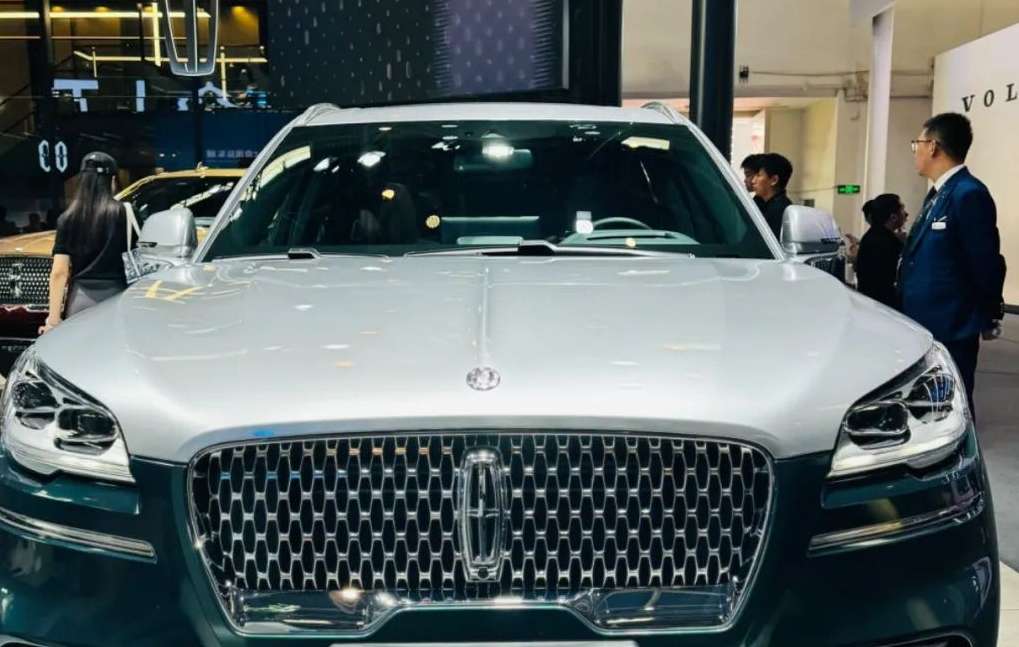Lincoln's Merger Crisis Revisited
Advertisements
In the ever-evolving landscape of the automotive industry, Lincoln's recent struggles in the Chinese market have become a focal point of discussion, especially as the company nears its tenth anniversary since re-entering China. The brand, once synonymous with luxury and elegance, has found itself navigating through challenging waters, leading to speculations about its future in this lucrative yet fiercely competitive market.
Recent reports have surfaced indicating a significant shift in organizational structure within Lincoln China. In an effort to enhance the operational efficiency of Ford in China, it is proposed that Lincoln China will dissolve its status as an independent sales and service entity and instead merge its functions—including sales, market strategies, and customer service—into Ford China. This restructuring aims to streamline operations and utilize shared resources to optimize costs amidst a backdrop of declining sales numbers.
Responding to these reports, Lincoln China reaffirmed that as of next year, the financial settlements will indeed be integrated into Ford China, but emphasized that all business operations will remain unaffected. Lincoln China will continue to function as a wholly-owned subsidiary of the Ford Group, maintaining its independent operations in the Chinese market. This declaration seems to serve as an attempt to quell rumors and reassure consumers and stakeholders alike of Lincoln's commitment to China.

Moreover, it has been reported that this structural change is accompanied by a significant overhaul of Lincoln's distribution channels. In an effort to ensure the healthy operation of its dealers and the overall health of the brand, Lincoln is dynamically adjusting its network. This includes the closure of underperforming dealerships located in less favorable areas, which is intended to reduce the number of 4S stores—full service, sales, and spare parts outlets—from 150 to 115. At the same time, new 1S and 2S stores are set to emerge in more desirable locations, designed to enhance Lincoln's luxury brand image while optimizing service and sales—a strategy aimed at better connecting with consumers.
Analysts point out that such drastic reforms within Lincoln's channel operations have led to misunderstandings regarding the brand's standing in the Chinese market, with some speculating that it may even lead to Lincoln's exit from China. However, the underlying cause of the current public relations turmoil primarily stems from the brand's persistent decline in sales in recent years.
Statistics reveal that in the first eleven months of this year, Lincoln managed to sell just 48,300 vehicles, a stark 17.7% year-on-year decrease. November numbers were particularly disheartening, with only 4,251 units sold—down 37.2% from the previous year. If this trend continues, Lincoln’s annual sales could plummet to around 50,000, resembling figures last seen in 2018.
Once basking in glory as the "presidential car," Lincoln has long represented American luxury. The height of its success and the turning points of its decline often coincide with the leadership of its previous president, Mao Jingbo, who took the helm in 2020. Under his guidance, Lincoln China initiated a local production strategy that proved fruitful. By localizing models such as the Aviator, Nautilus, and the introduction of the Lincoln Z sedan, the brand surged, doubling its sales from 46,600 in 2019 to an astounding 91,600 in 2021. Remarkably, China even overtook the United States as Lincoln's largest market during this period.
However, the market dynamics shifted dramatically in 2022. The rise of electric vehicles and domestic brands began to reshape the Chinese automotive landscape, leaving Lincoln vulnerable due to its lagging advancements in electric vehicle technology, which weakened its competitive edge. Consequently, Lincoln’s sales fell by 13.4%, totaling 79,300 units that year.
The departure of Mao Jingbo in September 2022 set the stage for a leadership transition. Zhu Meijun, who previously held several executive positions within the company, took over amidst challenges. Yet, with 28 years in Ford, Zhu's tenure did not bear fruit; by 2023, the sales dropped to 71,600, marking an 11.7% decline and placing Lincoln at the bottom among rival luxury brands.
Interestingly, insiders noted that Zhu took the position primarily out of necessity, as there were no suitable candidates available. This “just getting by” mentality has been cited as a contributing factor to Lincoln's downward trend. Under his leadership, there was a notable absence of new models introduced to the Chinese market, particularly in the burgeoning electric segment. Presently, Lincoln offers only five models, including domestically produced ones—Lincoln Z, Aviator, Nautilus, and imported models like the Navigator.
In March of this year, Lincoln did release hybrid versions of the Lincoln Z and Aviator, but these products closely resembled traditional gasoline vehicles, failing to resonate with the market's view of innovation in the electric vehicle space. This product stagnation has played a substantial role in the continued decline of sales.
Just over a year after Zhu's appointment, Ford China announced a new leader for Lincoln: Jia Mingdi, who is often recognized for his pivotal role in establishing SAIC Audi. With over 26 years at SAIC, Jia's reputation seemed promising. Nevertheless, despite his prestigious background in the luxury automotive segment, he too has faced a challenging uphill battle.
Currently, with nearly ten months under his leadership, Jia has not been able to turn the tides for Lincoln. Data indicates that in the first quarter prior to Jia's tenure, Lincoln's average monthly sales stood at 4,433 vehicles. However, post-appointment, those numbers have dwindled, averaging fewer than 4,000 units per month. The revolving door of leadership at Lincoln has failed to restore confidence and sales in the Chinese market, leaving many to wonder what the future holds for this storied American luxury brand.
Your email address will not be published.Required fields are marked *
Join 70,000 subscribers!
By signing up, you agree to our Privacy Policy